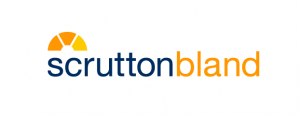
Expense fraud is not a new problem for UK organisations, but the ways it’s happening have changed rapidly in recent months.
Leisyen Cox, Associate Audit Partner looks at the growing number of firms now encountering fake expense claims created by artificial intelligence, and the signs that show this trend is accelerating.
In September 2025, data shows that around 14% of all flagged fraudulent submissions were AI-generated, up from zero the previous year.
The sudden rise is closely linked to the release of powerful new image‑generation tools by major technology providers earlier this year. Tools that have made it easier for individuals to produce convincing fake receipts in seconds.
A large fintech platform specialising in expense controls uncovered over £800,000 in fabricated invoices this summer. And finance teams are finding it increasingly difficult to spot these forgeries, with a recent survey suggesting nearly a third of professionals now struggle to tell the difference.
The wider impact of this is significant. Global estimates suggest digital and document fraud cost organisations nearly 8% of annual revenue, with more than £400 billion lost last year. Companies are especially exposed as fraud tools become cheaper and more readily available.
To tackle the issue, many organisations are adopting sophisticated detection systems.
These tools look beyond what meets the eye, searching for hidden clues in the way receipts are made or saved. However, technical measures can only go so far. Circulating or re-capturing screenshots can strip out much of the information these systems look for, making it a genuine team effort to pick up inconsistencies.
How to spot an AI generated expense receipt?
There are several tell tale signs of AI-generated expense receipts. These include:
- Receipts with inconsistent or missing metadata, such as creation dates that don’t match modification dates or files lacking camera information across multiple submissions from one employee.
- Visual anomalies, such as repeating noise patterns instead of the random speckle seen on thermal paper, suspiciously uniform letter spacing, straight baselines where folds or creases are visible, or barcodes and logos that slightly differ from real vendor marks.
- Receipts with perfectly clean edges without any signs of tearing, stapling, or folds.
- Receipts with shadows and lighting that seem unnatural for the supposed environment, and completely uniform darkness or ink bleed when receipts should display subtle variations.
- Duplicate submissions, altered or inflated amounts, or receipts that closely resemble each other across different claims can also signal potential fraud.
- Receipts displaying unusual patterns, such as random or repeated numbers across multiple employees, should be investigated further.
Key Actions for Finance Leaders and Management
- Reinforce the importance of submitting expenses through secure channels and being transparent with supporting evidence.
- Review internal processes to make sure validation steps are robust and up to date.
- Explore tools that help flag unusual patterns and enable quicker investigation of suspect claims.
- Encourage open communication. Raising any concerns, even about seemingly minor details, can protect your team and your organisation.
We’re here to help
If you’re looking for advice on how to strengthen your organisation’s approach to expense fraud, our counter fraud team is here to help.
We offer practical support through our Risk and Assurance Service, including tailored reviews and guidance on controls, fraud response, and prevention. Whether you’re after reassurance that your current processes are effective, or you need support with a specific concern, we’ll work with you to address your risks and build awareness across your organisation.
Get in contact with Leisyen or one of the team by calling 0330 058 6559 or email hello@scruttonbland.co.uk.





